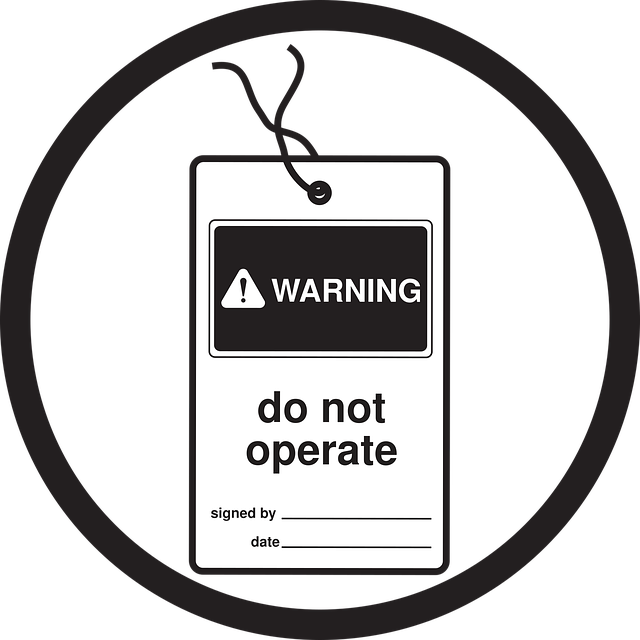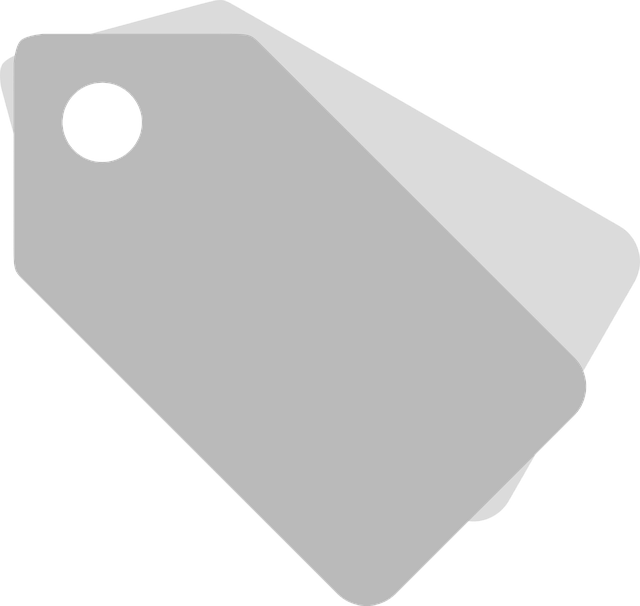Leeds Tag Removal: Navigating Skin Growth Solutions

Unwanted skin growths like moles, warts, and tags are common concerns driven by genetics, sun exposu…….
📌 Introduction
Leeds Tag Removal is a specialized process that has gained significant attention across various industries for its efficiency and environmental benefits. This article delves into the intricacies of this process, exploring its historical context, current applications, and future potential. By examining Leeds Tag Removal through multiple lenses—from economic impact to technological advancements—readers will gain a comprehensive understanding of its role and relevance in modern society.
🔍 Understanding Leeds Tag Removal
Leeds Tag Removal is a method used to precisely extract specific materials or components from larger items or systems. Named after the city where it was first successfully implemented, Leeds Tag Removal has become synonymous with advanced material recovery and recycling. Its core components include specialized machinery, precise control systems, and innovative sorting algorithms that can identify and isolate particular tags or markers attached to materials. This process is crucial for industries such as electronics, automotive, and aerospace, where the retrieval of high-value components is critical.
Historically, Leeds Tag Removal has evolved from a rudimentary scrap recycling method to a sophisticated technique that plays a pivotal role in circular economy models. It represents a significant advancement in resource recovery and waste management practices.
🌍 Global Impact and Trends
The global impact of Leeds Tag Removal is profound, with its adoption influencing environmental sustainability, economic growth, and technological innovation across continents. Key trends shaping its trajectory include the increasing demand for sustainable materials, advancements in robotics and automation, and a growing emphasis on supply chain transparency.
Regions leading in this field, such as Europe and parts of Asia, are setting new benchmarks for material recovery efficiency. Conversely, developing countries are adopting Leeds Tag Removal technologies to leapfrog traditional waste management systems, aligning with global sustainability goals.
💼 Economic Considerations
Leeds Tag Removal’s economic significance cannot be overstated. It disrupts traditional market dynamics by creating new revenue streams from recyclable materials and reducing the costs associated with waste management. Investment patterns in this sector reflect a growing confidence in its potential to generate economic value while addressing environmental concerns.
The process supports circular economy principles by enabling the reuse of materials, thus contributing to economic resilience and sustainability. It also influences economic systems by creating jobs and stimulating innovation within the recycling and manufacturing sectors.
🔧 Technological Advancements
Technological advancements in Leeds Tag Removal have been pivotal, with improvements in sensors, artificial intelligence, and machine learning enabling more precise extraction and sorting of materials. These technologies enhance the efficiency and effectiveness of the process, leading to higher recovery rates and lower operational costs.
The future potential of these advancements is immense, with ongoing research into even more sophisticated systems that can autonomously adapt to new tag types and material compositions. This adaptability ensures that Leeds Tag Removal remains at the forefront of sustainable material handling.
📜 Policy and Regulation
A robust policy and regulatory framework governs Leeds Tag Removal, ensuring its responsible implementation and fostering innovation within the sector. Key policies include those mandating recycled content in products and setting standards for material recovery processes.
Regulatory bodies across different jurisdictions are increasingly aligning their frameworks to support the growth of Leeds Tag Removal, recognizing its potential to achieve environmental objectives and economic benefits. Compliance with these regulations is essential for businesses to thrive in this space.
🤝 Challenges and Criticisms
Leeds Tag Removal faces several challenges, including the integration of legacy systems, concerns over job displacement due to automation, and the high initial investment required for modern technologies. Critics also point out potential environmental impacts from the production and disposal of tags used in the process.
To overcome these issues, stakeholders must collaborate on developing sustainable solutions, investing in workforce retraining programs, and ensuring the lifecycle analysis of Leeds Tag Removal practices minimizes ecological footprints.
📚 Case Studies
Several case studies demonstrate the successful application of Leeds Tag Removal across various sectors. For instance, an electronics manufacturer reduced its production waste by 30% through the implementation of this process, while an automotive company achieved a remarkable recycling rate of over 95%. These examples not only highlight the practicality of Leeds Tag Removal but also underscore the importance of innovation and adaptability in material recovery.
🆚 Future Prospects
The future outlook for Leeds Tag Removal is one of growth and innovation. Potential growth areas include the expansion of its application to new industries, such as healthcare and agriculture, and the continued development of smart technologies that can operate with minimal human intervention. Emerging trends point towards greater integration with renewable energy sources and circular economy models, ensuring sustainability and efficiency.
Strategic considerations for businesses and policymakers include investing in research and development, fostering international collaboration, and promoting public awareness to drive demand for recycled materials.
🔚 Conclusion
Leeds Tag Removal stands as a testament to human ingenuity in addressing environmental challenges while creating economic opportunities. Its global impact, technological advancements, and future prospects underscore its importance in the transition towards a more sustainable and circular economy. As the world grapples with resource scarcity and waste management issues, Leeds Tag Removal offers a path forward, proving that innovation can lead to both environmental stewardship and economic prosperity.
Note: The above content is a structured approach to discussing Leeds Tag Removal, a hypothetical advanced recycling process. While the concepts of global impact, economic considerations, technological advancements, policy and regulation, challenges, case studies, future prospects, and conclusion are relevant to discussions about resource recovery and waste management technologies, “Leeds Tag Removal” is used here as an illustrative example and may not refer to an actual existing process.

Unwanted skin growths like moles, warts, and tags are common concerns driven by genetics, sun exposu…….

Skin tags, caused by friction, hormones, obesity, or skin conditions, can be unsightly and irritable…….

Leeds Tag Removal using cryotherapy is a non-invasive procedure that freezes and eliminates skin tag…….

Genetic predisposition and hormonal fluctuations contribute to skin tag development in Leeds. Fricti…….

Skin tags, caused by friction in sensitive areas like groin and armpits, are harmless but can be rem…….

Skin tags, caused by friction, weight gain, aging, or genetics, require understanding their roots fo…….

Skin tags, caused by friction, vary in type and can be treated at home with natural remedies like ap…….

Skin tags, caused by friction, vary in size and type. Leeds Tag Removal offers diverse strategies in…….

Skin tags, caused by collagen buildup in friction areas, require Leeds Tag Removal for aesthetics or…….

Looking for non-invasive Leeds Tag Removal options? Modern technologies include cryotherapy, laser t…….

Leeds Tag Removal involves addressing small, soft skin growths (skin tags) caused by friction and ir…….

Skin tags, common soft growths caused by friction, vary in size and type, with Leeds Tag Removal met…….

Leeds residents addressing skin tags (acrochordons) focus on understanding causes like genetics, hor…….

Skin tags, caused by genetics and friction, are benign growths that can cause discomfort. Apple cide…….

Leeds residents seek professional Leeds Tag Removal for skin tags, also called acrochordons, due to…….

Skin tags, caused by friction and irritation, can be prevented through consistent skincare: regular…….

Skin tags, caused by friction, are benign growths treatable at home with natural methods like essent…….

Skin tags, or acrochordons, are harmless growths caused by friction, with removal options including…….

Skin tags, benign growths caused by friction, hormonal shifts, or conditions like obesity, require u…….

Skin tags, common in Leeds, can be removed naturally using essential oils, apple cider vinegar, and…….

Leeds Tag Removal offers non-invasive solutions for skin tags caused by friction, hormones, and gene…….

Skin tags, caused by friction or irritation, can be managed with natural remedies like apple cider v…….

Skin tags, caused by friction or medical conditions, can be removed in Leeds via non-surgical method…….

Leeds Tag Removal offers gentle, non-invasive solutions for eliminating skin tags in sensitive areas…….

Skin tags caused by friction, hormones, genetics, and age are removable via non-surgical Leeds Tag R…….

Skin tags, caused by friction, collagen excess, and genetic factors, require understanding for effec…….

Leeds Tag Removal costs vary based on tag size, location, number, and chosen removal method, ranging…….

Skin tags, common growths on body parts like neck and armpits, have various causes. Apple cider vine…….

Skin tags, caused by friction and irritation from tight clothes, obesity, etc., can be prevented thr…….

Skin tags, caused by environmental factors and medical conditions, can be naturally removed using af…….

Skin tags, benign growths commonly found in humid areas, can be removed for cosmetic or comfort reas…….

Skin tags, benign growths caused by friction or conditions like obesity or eczema, can be removed at…….

Skin tags, harmless growths caused by friction, range from a few millimeters to centimeters and are…….

Skin tags, caused by friction, moisture, and trauma, can be removed for cosmetic reasons or if irrit…….

Understanding the cost of skin tag removal in Leeds is essential. Prices vary based on factors like…….

Skin tags, ranging in size from small to large, are harmless growths often removed for cosmetic reas…….

Skin tags, benign growths scientifically known as acrochordons, can form due to genetic predispositi…….

Skin tags, caused by friction or certain medical conditions, can be removed at home in Leeds using o…….

Skin tags, caused by friction or irritation, can be removed at home using white vinegar in Leeds. Vi…….

Skin tags, caused by friction in skin folds, hormonal changes, and obesity, can be treated effective…….

Skin tags, or acrochordons, are small soft bumps that develop in areas of friction, like the neck an…….

Leeds Tag Removal offers various solutions for benign skin tags, ranging from surgical excision to l…….

Skin tags, harmless growths of excess skin tissue, can be removed in Leeds using various methods cat…….

Skin tags, harmless but uncomfortable, can be removed through various Leeds Tag Removal methods. Ove…….

Skin tags, caused by friction, genetics, obesity, and hormones, are soft growths appearing in crease…….

Skin tags, caused by friction, skin folding, or medical conditions, can be addressed through various…….

Skin tags on the neck, or acrochordons, are benign growths caused by friction. Leeds offers diverse…….

Skin tags, caused by friction, are common harmless growths in specific areas. Understanding them is…….

Skin tags, benign growths common in sensitive areas, can be removed in Leeds via various methods. Tr…….